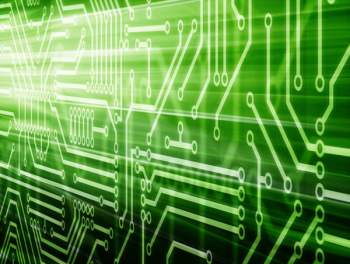
Must Know Facts on Computer Crimes

Federal Government and Computer Crime
The Federal Government of the United States of America is one of the most popular targets of computer hacking crimes and is at or near the top of the annual list of most common targets of computer crime organizations. The Federal Government is such a popular target for hackers because the Federal Government of the United States of America has the personal information of every American in its computer systems.
The wealth of information contained in the Federal Government mainframe presents a very tempting target for a hacker, whether the intent of their computer is to obtain the information in the Federal mainframe for nefarious purposes or if the computer hacker is only trying to determine if their computer hacking skills are sufficient to hack into a well-encrypted system.
The computers of the Federal Government present a serious challenge to a computer hacker because the Federal computer system contains some of the most advanced encryption measures. As a result, the Federal Government organization designed with maintaining the security of the web systems are in an ever-escalating war with cyber hackers who engage in terrorism to attempt to force their way into the Federal network. This conflict only occasionally results in computer crime charges being filed against the individuals who are engaged in these computer crimes.
Part of the difficulties encountered by the Federal Government of the United States when attempting to press charges include difficulties in identifying the individuals who have hacked the computer system, as well as difficulties in establishing jurisdiction over the computer hacker in the event that the computer hacker has been identified.
Background
The Federal Government has had numerous reports of computer crimes committed both against the Government and American citizens. As the number of computer crimes increase more and more every year, the Government works hard to combat these crimes and to put a mass amount of effort into creating new ways to increase network security.
Certain computer crimes violate Federal and State laws according to the criminal codes and statutes that are created and provided by the Federal Government and other jurisdictions. The Government and FBI will get involved when an infraction occurs against a Federal Code while someone is using their computer. The United States Attorney's Office will most likely become involved if the computer crime is committed on a Government-owned computer or against the Government's network system.
One of the most common forms of computer attacks against the Government comes in the guise of an information warfare attack or a denial of services attack. These attacks are set out against the Government in order to collect classified information, as a means to exploit, as a form of spying against the Government, or to create real world destruction to the country and its Government.
Anxieties Over Hacking Government Mainframes
Cyberterrorism is one of the country's biggest threats and it is executed when criminals trespass into the Government's computer network as a means to illegally gather information, and to not only cause chaos within the Government's computers, but also to cause damages in the physical world. Cyberterrorism can be committed when a terrorist attempts to cause network interference on Government computers, which will result in technical errors that disallow simple functions to be performed that would normally be easily carried out. This then causes serious security and safety issues.
For example, scientists were stationed in Antarctica at a specialized facility when a cyberterrorist attempted to shut down their support system, bringing potential harm to the scientists and their life functions. Cyberterrorists can do this by physically hacking into the Government's mainframe and disrupting networks or by using harmful bugs that will impair the computers using malicious codes.
Cyberterrorism can also bring harm to the country's economy. Many times, cyberterrorism is closely linked with denial of services attacks and information warfare. These attacks involve computers, obtaining information, and causing harm using the computer as a tool to do so.
Past Attacks on Government Computers
There have been several reported cases of attacks on government computers. One example occurred in 2009 during Iran's election protests. Foreign activists decided to launch a denial of services attack on Iran's government during this event. It was reported multiple times that the government's website was deemed unusable.
Since the United States has come under fire for such cyber attacks, the government has reported that it has had to pay over one hundred million dollars to repair the destruction. As a result, the country has been working tirelessly to create new forms of cyber security measures to lessen the chance of a cyber security breach.
Obama and Internet Security
The FBI and Government's main priorities in stopping computer crime are: to prevent the spread of malicious code, sexual predators, illegal hacking, and to prevent information warfare against both the Government and the public. The FBI and the United States Government joined forces to establish organizations known as: the Computer Crime and Intellectual Property Section (CCIPS), the Internet Crime and Complaint Center (ICCC), the National Strategy to Secure Cyberspace (NSSC), Federal Computer Intrusion Laws, Cyber Crime Law(s), and the Computer Fraud and Abuse Act (CFAA). The Government also uses their own Government computers as a means to track criminals that they feel violate Federal laws.
One of President Barack Obama's main concerns was the threat of cyberterrorism against the United States. The President took action by appointing a cyber security tsar (Howard Schmidt) and created a cyber security office located within the White House. The cyber security office reports to the National Security Office in an effort to combat cyber threats against the country.
Potential Areas of Abuse
Hacking, viruses, worms, information warfare, and denial of services attacks are some potential forms of abuse that threaten the United States Government and the country. The Computer Fraud and Abuse Act (CFAA) was created in 1984 by the United States Congress. This Act helped to enforce the laws and to prevent computer crimes. It has existed as a means to bring justice to those who wish to commit such violations as computer crimes.
The CFAA takes serious action against those who commit crimes against Government-owned computers, computers used in financial businesses, or a computer crime that involves tampering with a computer that is used in dealing with foreign entities due to the threat that it poses on national security.
NEXT: Computer Crime



















